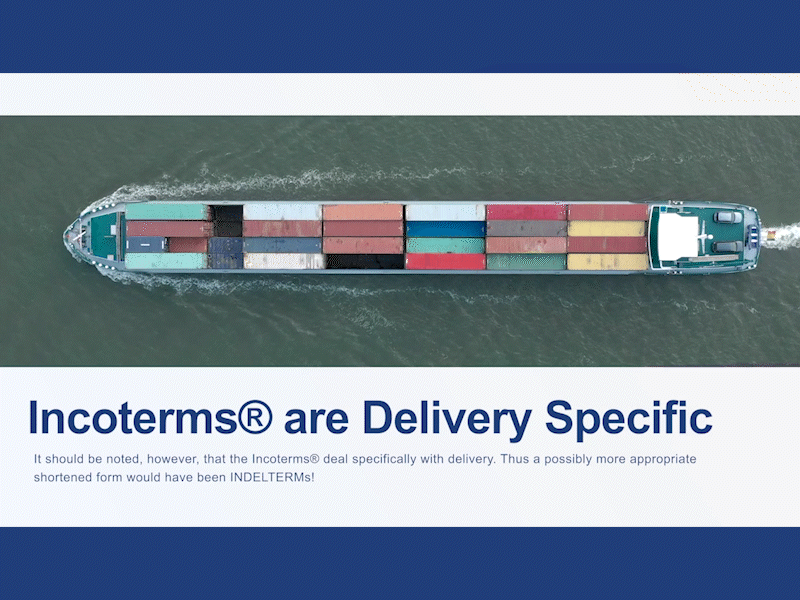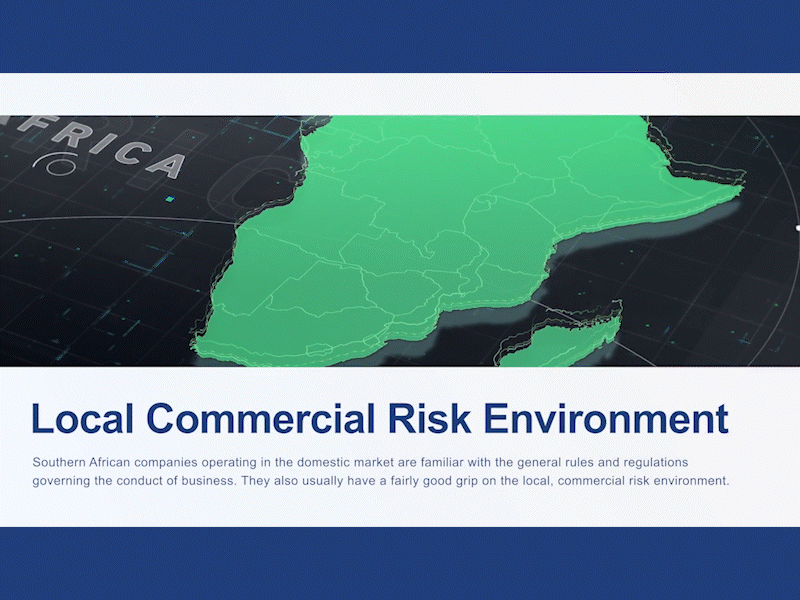Many business opportunities await southern African companies in foreign markets. There may be a growing demand for their products, prospects for expanding their production capacity or even new markets created by world events that impact global economies. Regardless of the reasons, before you begin formulating new strategies, you should answer this simple question: “Should I be exporting my product?” To answer that, we need to understand some important issues, such as why countries trade internationally with each other in the first place.
Why do Countries Trade with Each Other?
The reason usually given is that no country is completely self-sufficient, but it definitely runs deeper than that. For example, some countries have underdeveloped industries, or infrastructure that impacts the ability of their businesses to efficiently produce what they require. Other countries may have developing industries that cannot produce to the same standard as well-established industries in other countries. Why countries trade often boils down to mutually beneficial exchange. Frequently too, trade takes place out of self-interest; for example, a company sourcing manufacturing inputs may find it more cost-effective to purchase them from abroad because local suppliers cannot match either the quality or the price of their overseas competitors. The downside of this, however, is that it frequently gives rise to countries introducing barriers to trade.

Potential Barriers to Trade
Barriers to trade are introduced by governments, usually because a local company has complained to its country’s authorities about the impact cheap imports are having on its business. With the threat of job losses in the offing, governments will usually attempt to raise the price of the imported goods to make them less attractive to local buyers.
Barriers to trade either take the form of tariff barriers or non-tariff barriers. Tariffs are schedules of duties that are usually applied to imported goods when they enter a country. Of course, where a country has entered into a preferential trade agreement with another country or trading bloc, tariffs may be drastically reduced or removed altogether from goods being sourced from the countries which are parties to the agreement, allowing for virtually free trade between them. Non-tariff barriers to trade can be more problematic as they are often less easy to detect. They can take the form of mandatory product quality requirements or compliance with country health and safety regulations. They may even affect the way a company produces its products. For example, if a factory is pumping effluent into a river, it could be considered to be in contravention of an importing country’s environmental protection laws!

The Impact of Global Bodies on International Trade
When it comes to international trade, universally accepted rules for the conduct of trade have been developed to make exporting and importing easier for everyone. A number of independent global bodies, like the World Trade Organization whose member countries are responsible for 98% of world trade, have been established to act as neutral parties in the determination of standards, procedures, documentation and rules associated with international trade. The respective contribution of these global international trade bodies to trouble-free is covered in our free online course, available for sign-up here.
To assist you in getting to grips with the complexities of international trade, we have developed a comprehensive training course covering all aspects of the field, and the good news is that every module is free! Click the link below to sign up and get started.
To sign up to the School of Export CLICK HERE.
If you already have a profile, CLICK HERE to login to begin the module.










Leave a Reply